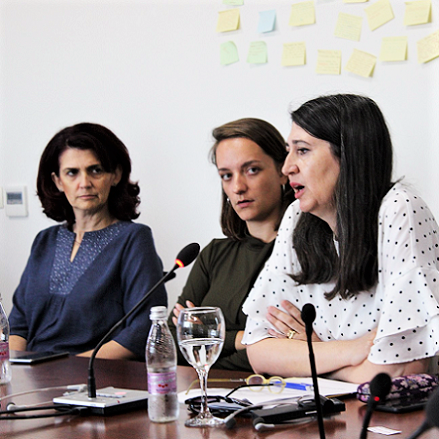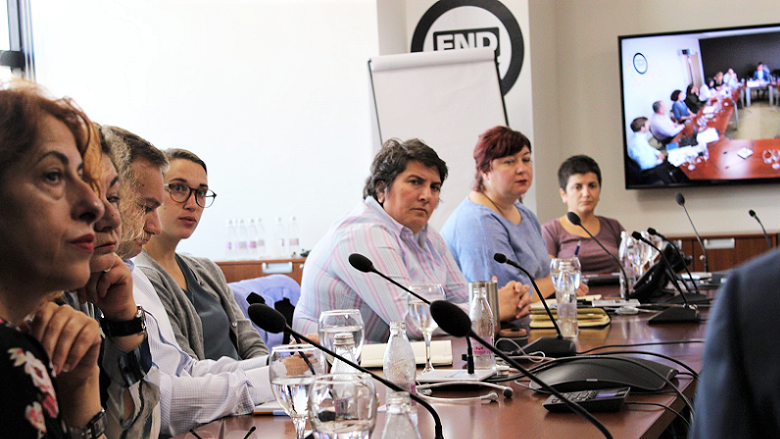Recommendations for Kosovo’s Labor Market Policies
At around 18%, Kosovo faces one of the lowest female labor force participation rates in the world – well below other Western Balkan countries (see the SEE Jobs Gateway Database). Women’s employment outcomes in Kosovo are significantly worse than in other Western Balkan countries.
Moreover, among women participating in the labor market, unemployment rates are higher than those of men. These problems are well recognized and increasing women's participation in the labor market has become a public policy priority for Kosovo. Yet, women continue to be underrepresented among the beneficiaries of the Employment Agency’s employment support programs.
Recent research by the World Bank, D4D, and Riinvest suggests that there are multiple barriers to women’s participation in the labor market, including: family responsibilities in combination with limited access to quality and affordable child and elderly care; conservative social norms and discrimination; lower levels of education and work experience among women; barriers in the labor law (e.g., high cost of maternity leave for employers); and women's limited access to assets and productive inputs. Hence, improving the situation for women in the labor market will require addressing these challenges upfront. Some reforms, such as those related to the labor law, are already underway and have stimulated significant discourse in recent months.

What is the role of the Employment Agency?
Although many obstacles women face are of structural nature and beyond the scope of the Ministry of Labor and Social Welfare and the Public Employment Agency, experience in Kosovo, and across the world, highlights the ways in which ALMPs can facilitate women's transition into the labor market. Indeed, instruments such as career guidance and job matching, skills training, and self-employment assistance can show positive results, provided women’s specific needs are taken into account.
With the participation of many local stakeholders, such as the Agency for Gender Equality, Kosovo Women’s Network, and Women 4 Women Kosovo, the workshop centered on key questions to operationalize gender-sensitive programming in Kosovo:
- How can we encourage women’s job searching and registration as unemployed (i.e., reduce inactivity)?
- What role can career guidance and intermediation services play in matching women with adequate activation measures?
- How can we increase the attractiveness and ease of participating in training and other active measures?
- How can we increase gender sensitivity in ALMPs such as vocational training, on-the-job training and self-employment support?
Recommendations
In response to these questions, workshop participants suggested several actions to be considered. For instance:
- Outreach: Provide more information about the services offered at the Employment Agency, including to NGOs who can act as intermediaries for sharing information with the women they serve. Additionally, advertise success stories of women who found work through the Employment Agency’s support measures.
- Orientation: Provide counseling to address gender-stereotypes and occupational segregation, for instance by promoting work opportunities for women in non-traditional sectors and occupations.
- Prioritize on-the-job training and job search assistance: Interventions that provide practical work experience to women should be expanded. Moreover, complementary support on how to search for jobs and engage with employers have proven useful.
- Soft skills: While important for both men and women, women may benefit more from soft skills training to foster self-esteem, decision-making, negotiation skills, and perseverance, for example.
- Schedules: Acknowledging women’s time constraints, provide flexible schedules and various time options for participation in services (e.g., mornings, evenings, weekends).
- Networks: Promote networking as part of services/trainings (e.g., through self-help groups, mentoring) to expand women's professional networks.
- Access and transportation: Ensure easy and safe accessibility of training locations, and cover travel expenses as needed.
- Child-care: Provide child care assistance at training facilities or offer child care stipends.
- Work environment: Engage with employers to foster a women-friendly workplace (e.g., part-time, flexible hours, occupational safety and health).
Next steps
The recommendations collected during the workshop provide a number of viable options for improving gender sensitivity within existing employment services and active measures. Development partners can build on these recommendations when supporting the Ministry of Labor and Social Welfare and the Public Employment Agency. Specifically, the recommendations from the workshop can inform the drafting of the Ministry of Labor and Social Welfare’s Employment Policy 2019-2021 as well as revisions to the Operations Manuals of ALMPs.
